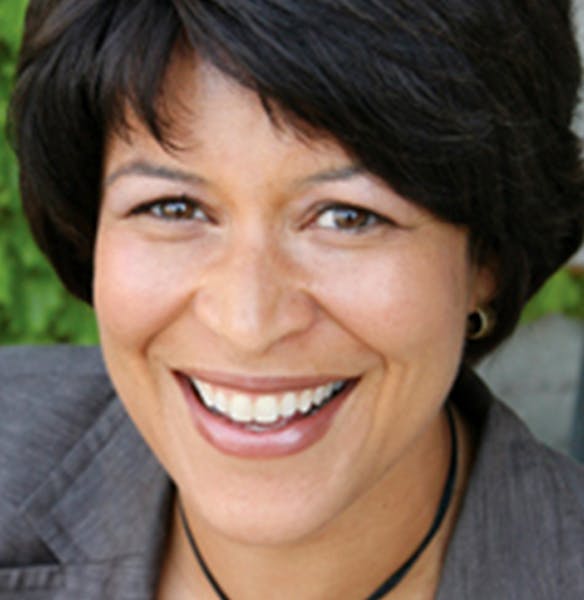The University of Minnesota isn't specifically discriminating against female athletes.
The school is discriminating against unprofitable sports.
You can hate Norwood Teague for that.
Or you can accept that the University of Minnesota hired Teague to do exactly what he and just about every other major-college athletic director is doing these days — trying to make money via football and men's basketball by raising money for football and men's basketball.
If Teague performs this task well, he will be accused of undercutting women's sports.
If he doesn't perform this task well, he will be fired.
Minnesota's athletic department is the subject of a gender discrimination investigation.
Few women's sports make money. Of course, few men's sports make money.
So the real question here is philosophical.
If the U exists to be a profit center, then of course Teague and President Eric Kaler should pump funds into their revenue sports.
If the U exists to provide a rich educational experience on a campus that celebrates diversity of choice, then the U should be willing to lose money on nonrevenue sports.
Unfortunately for aspiring rowers, major state universities are profit centers.
In a perfect world, the U campus would serve as a melting pot of ideas, cultures, educational disciplines and extracurricular activities. One of the supposed rewards of attending a major university is going to lunch and finding the star point guard at one table and the chess club champion at another.
As so often is the case in other businesses, ideals rarely survive budget meetings.
Nothing about the American system of higher education is perfect, or even equitable.
In past generations, a middle-class student willing to work could graduate without college debt, or at least without much of it. If you carried college debt from a typical state university, maybe you would have to drive an inexpensive car for a while. College debt kept you from making luxury purchases; it didn't keep you from living decently.
For the current generation, universities have operated much in the manner of loan sharks. Only, for some reason, everybody seems to love these loan sharks.
Change the terminology, and the university system in the United States begins to sound like the mob.
A syndicate uses its leverage to threaten young people. The threat: Without paying us, you can't get a decent job.
The youngsters must pay exorbitant fees to the syndicate, which then judges them, wielding its power over them in a way that has gotten dictators deposed.
The young pay the exorbitant fees, usually only by borrowing money from predatory lenders aligned with the syndicate.
In a psychological twist similar to the Stockholm syndrome, in which hostages become fond of their captors, the preyed-upon young people spend what little money they have left on clothes and paraphernalia to further profit the syndicate.
In a psychological twist similar to many cults, the young people even show up at events and cheer for the syndicates' representatives, even wearing the colors favored by the syndicate.
In a rational world, these young people would all be sent to treatment.
In the world as it is, they can't afford treatment. They're buried in college debt.
The syndicate is our system of higher education and the loan sharks are the major banks who came close to bankrupting our country last decade, and now are settling for bankrupting an entire generation of students. Students who pay the high interest rates on the high price of college, and somehow remain proudly loyal to the syndicate/college anyway.
I prefer the idyllic university that serves all constituents and athletes, even those who don't produce revenue.
I want to see rowers and tennis players walking tree-lined paths at the local university.
I want a system where Lindsay Whalen can become a statewide hero, and the women's volleyball team can produce Olympians.
But state universities stopped being melting pots long ago.
These days, the melting pot is used to liquidate bricks of gold.
Jim Souhan's podcast can be heard at souhanunfiltered.com. On Twitter: @SouhanStrib. jsouhan@startribune.com

Souhan: Wolves fans made Game 1 special. Now bring on Game 2.

Souhan: Should Vikings even consider McCarthy in NFL draft?

Souhan: NAW erases Suns' lead, Game 1 advantage with big performance

Souhan: This is KAT's chance to prove Flip Saunders was right


